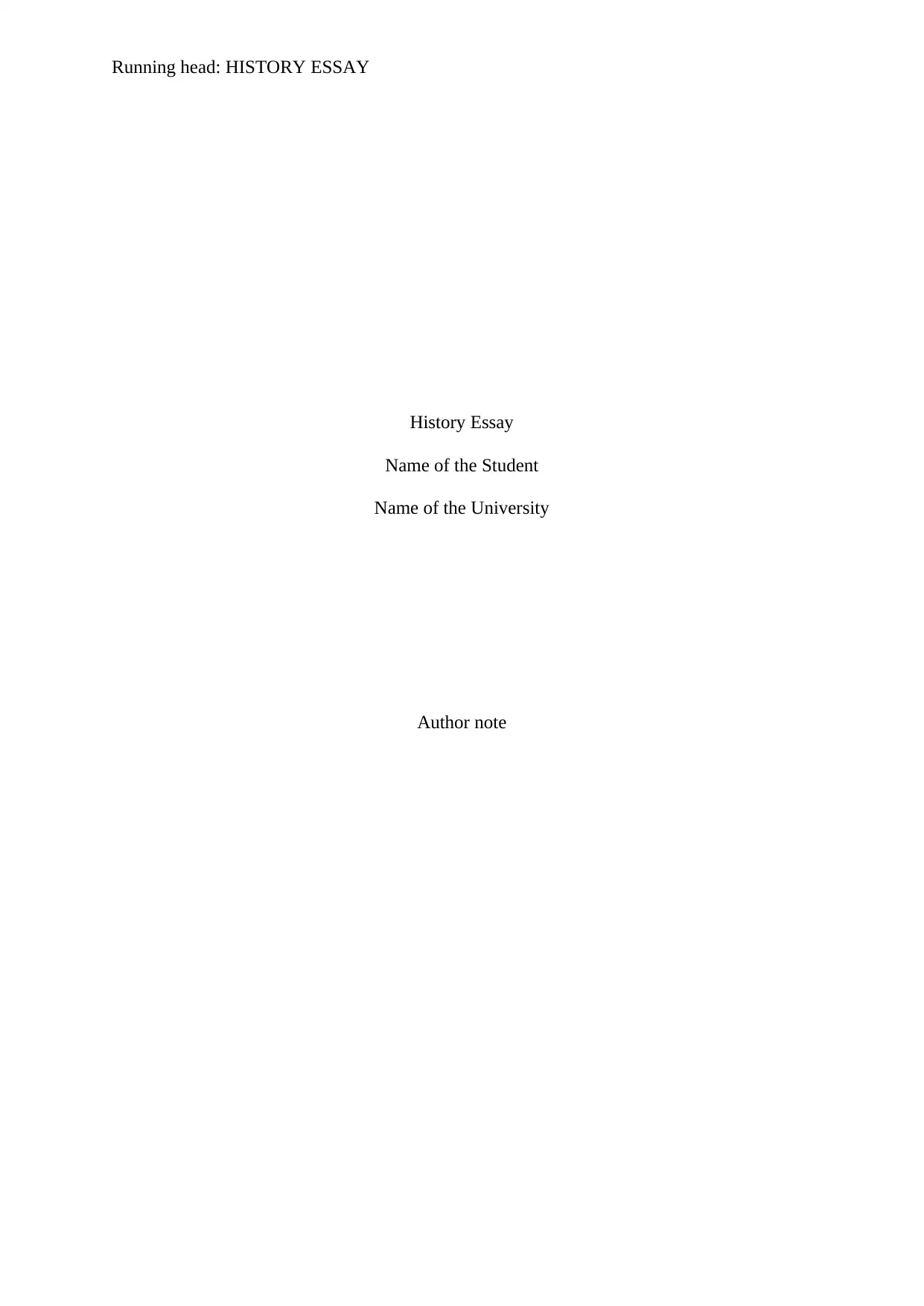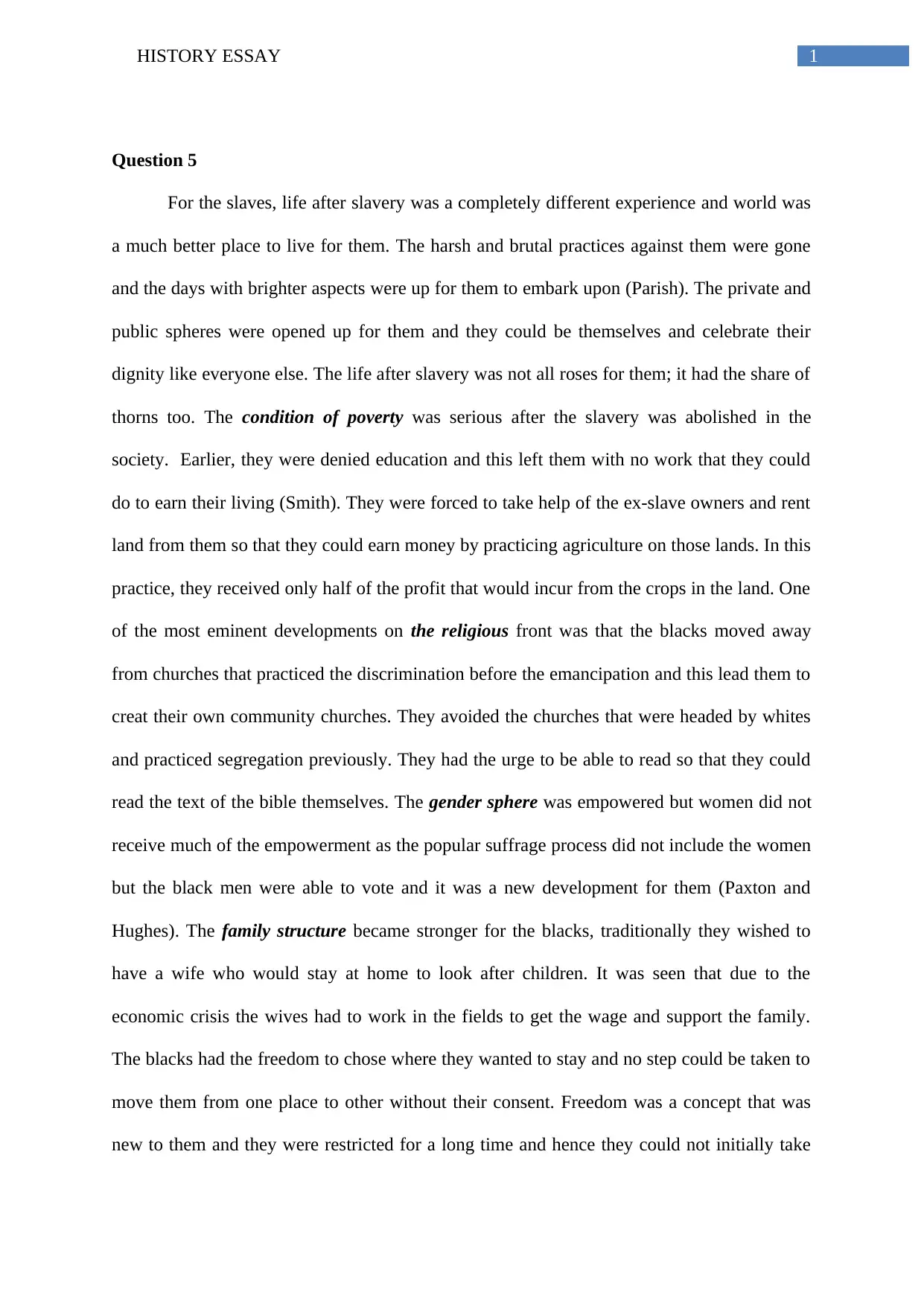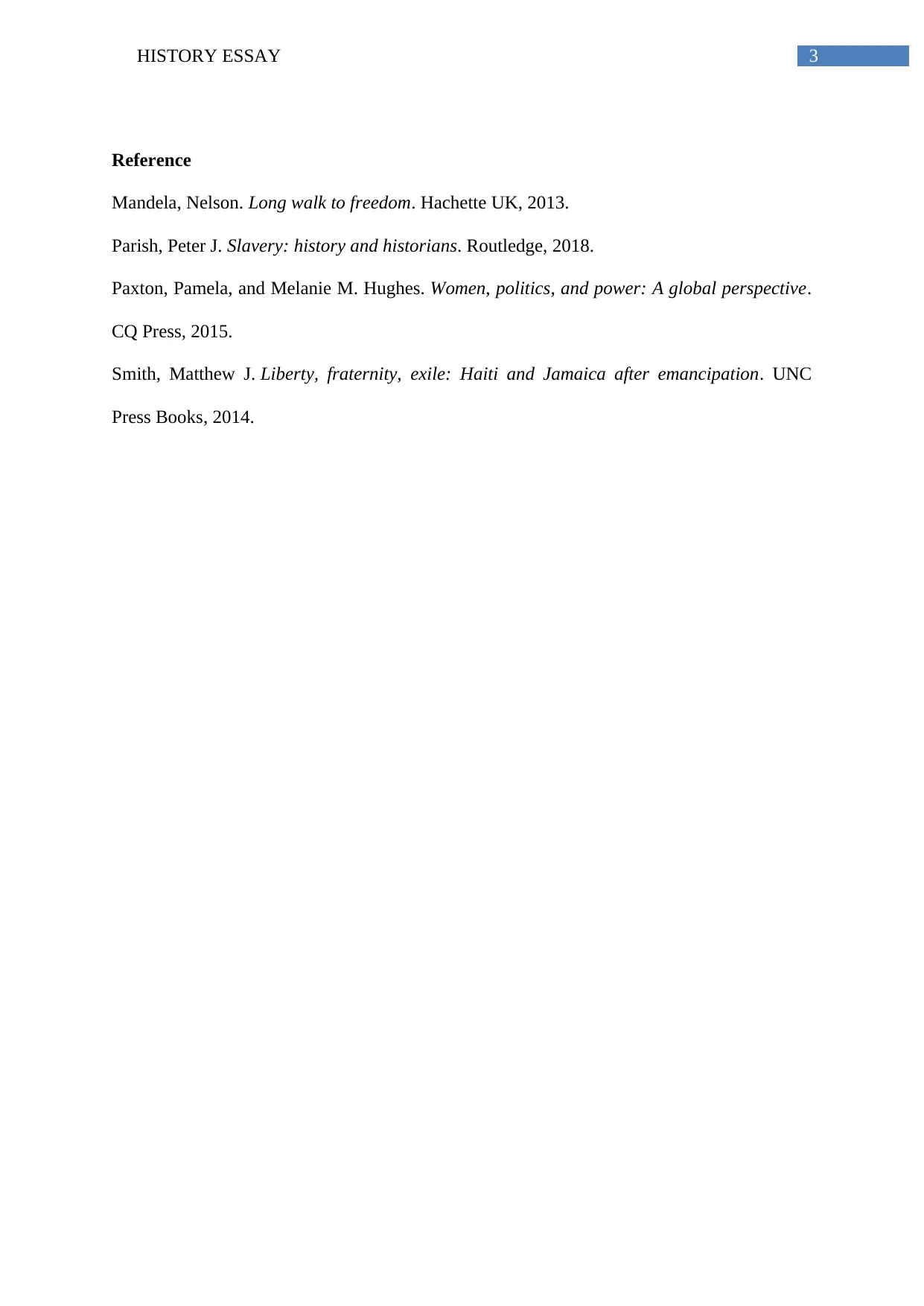Exploring Life After Slavery: A Detailed History Essay
VerifiedAdded on 2023/06/15
|4
|534
|195
Essay
AI Summary
This essay delves into the multifaceted experiences of slaves following emancipation, highlighting the significant improvements in their lives while also acknowledging the persistent challenges they faced. Although freed from the brutal practices of slavery, newly liberated individuals encountered economic hardships, largely due to limited access to education and employment opportunities. Many were compelled to rely on former slave owners, engaging in sharecropping arrangements that offered minimal financial returns. The religious landscape also shifted, with black communities establishing their own churches to escape discrimination. While black men gained suffrage, women were excluded, and families grappled with economic pressures that often required women to work in the fields. Despite these difficulties, the newfound freedom allowed blacks to choose their residence and strive for social and economic integration, gradually securing their rightful place in society. Desklib offers more resources for students, including similar essays and past papers.
1 out of 4











![[object Object]](/_next/static/media/star-bottom.7253800d.svg)